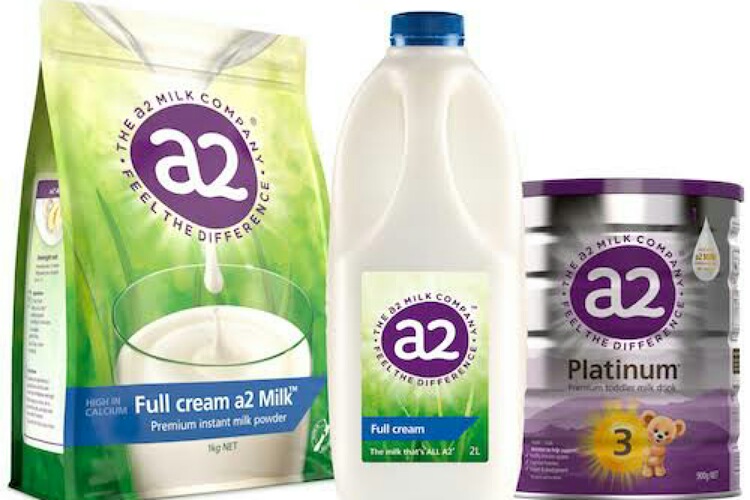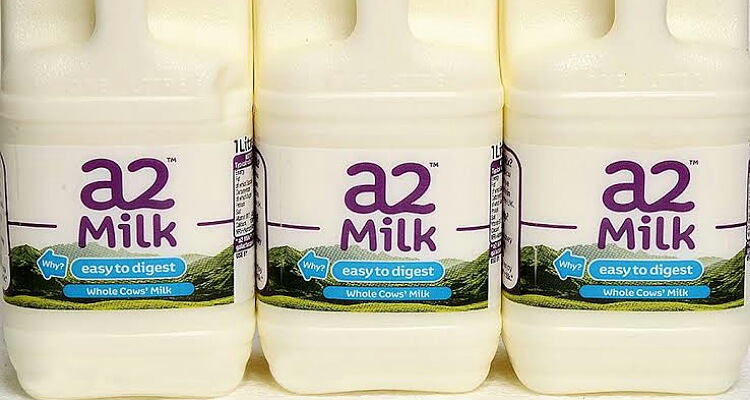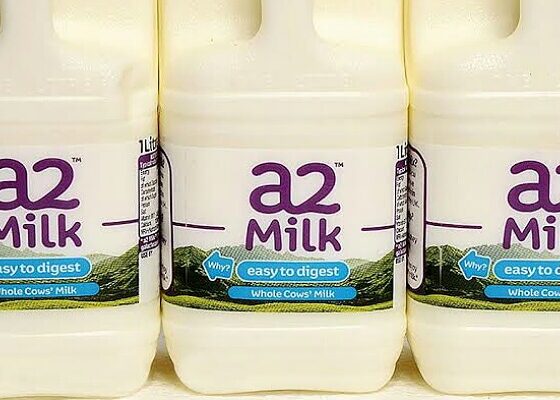You might have seen the term A2 milk in supermarkets and wondered what it means. Milk has micronutrients and micronutrients that are essential for body, health, brain, muscles and bones. Does A2 have all these components? How is it different from the traditional dairy milk?
What is A2 Milk?
Cow’s milk is vital food for everyone and especially for kids and elderly people. It builds bones and muscles and has calcium, protein, vitamin D, etc. Some people want to drink milk but are intolerant to it. They suffer stomach upsets and bloating and are unable to digest it.
These people might be lactose intolerant. For them, lactose free milk is okay. But some people are not lactose intolerant. Yet, they find milk hard on their tummy. Such people have problems with the casein protein of cow’s milk.

Casein is a protein that constitutes 30% of the milk protein. And the beta casein is of two types: A1 beta-casein and A2 beta-casein. Both are made of amino acids and good for the body. But some people develop gastrointestinal discomfort with A1 beta-casein. Hence, for these people cow’s milk containing only A2 beta-casein is suitable. This is A2 milk.
Therefore, A2 type of milk is traditional cow’s milk that has lactose, protein, calcium, and vitamin D. But it is free of the troublesome A1 beta-casein. The milk is from cows that have milk with only A2 beta-casein.
Nutrition
The company website provides these details about the nutritive value of this special milk. 1 cup or 240 ml of 2% reduced fat milk of A2 gives 120 calories. It has 8 grams of protein, 5 g of fats, and out of this 3 g is saturated fat. Carbs are 12 g and there is no fiber. The carbs are as sugars or lactose 12 g. Moreover its vitamin D content is 15% of DV. The calcium in it provides 25% of DV. Additionally, it also has potassium and vitamin A.
And all these nutrients are almost similar to that of regular 2% reduced fats cow’s milk.

Is it healthier?
Both types of milk: A2 and regular cow’s milk are similar. But the only difference is that traditional cow’s milk has both types of beta-casein (A1 and A2) in it. Whereas the new and special A2 type of milk has only A2 beta-casein in it. It does not have A1 beta-casein. Hence, it is good for people who are intolerant to milk due to the A1 beta-casein. But it is not suitable for people with lactose intolerance or protein casein allergy (cow’s milk allergy).
If we look at the nutritional facts, both types of milk have similar amounts of macronutrients and micronutrients. One is not superior nutritionally over the other. There is no nutritional advantage of A milk over regular cow’s milk. Moreover, they taste also the same. If you or your kids do not like the taste and smell of the traditional milk, you will not like the taste and smell of the special milk too.

Read here: Bananas and milk: the good, the bad, and the ugly!
The 2021 review on this new milk reveals that the new milk offers no cardiovascular or other health advantage compared to the regular cow’s milk.
Thus, A2 type of milk is only meant for that category of people who are intolerant to A1 beta-casein.
